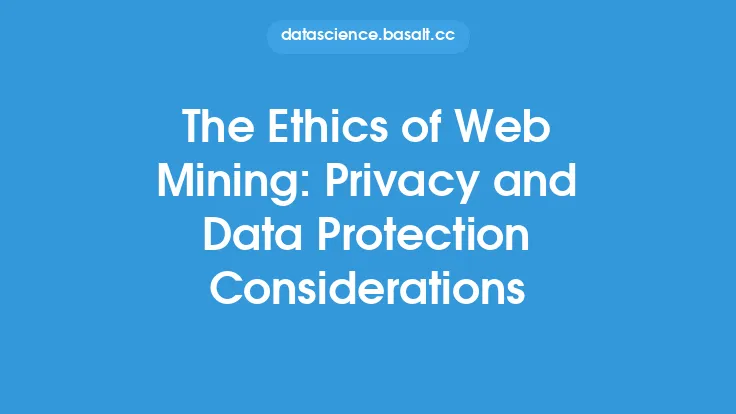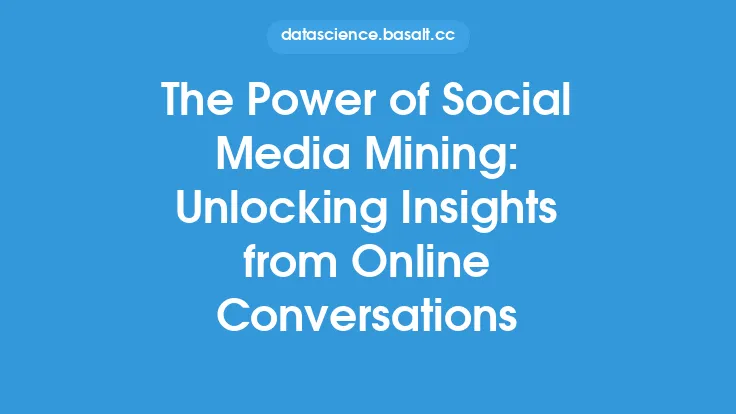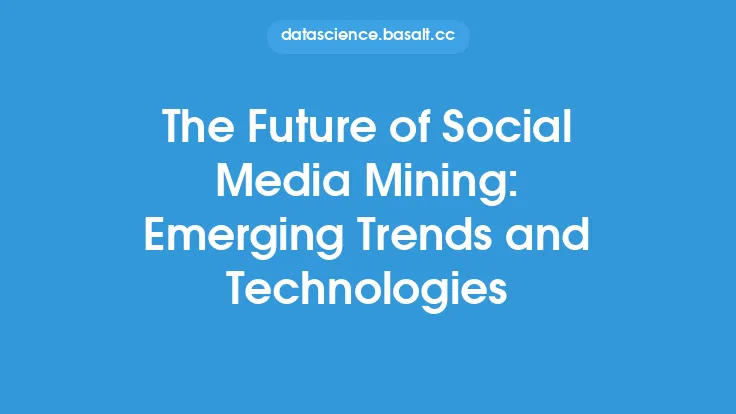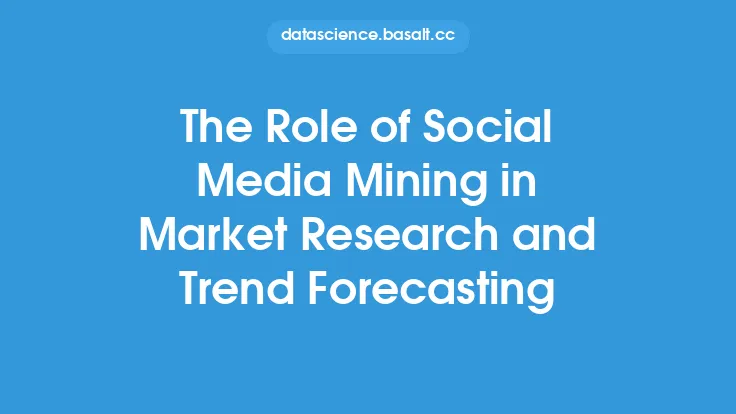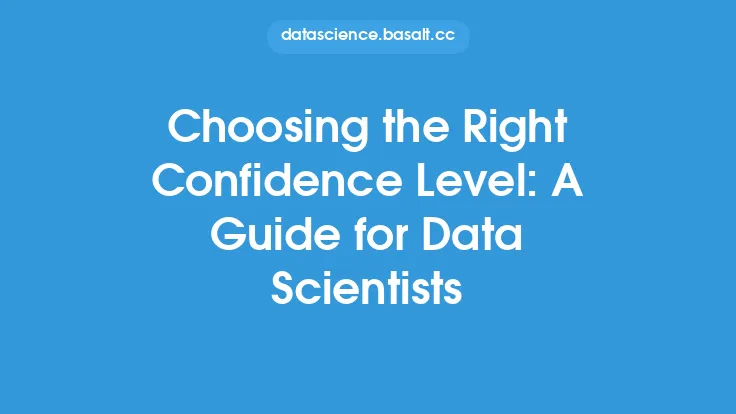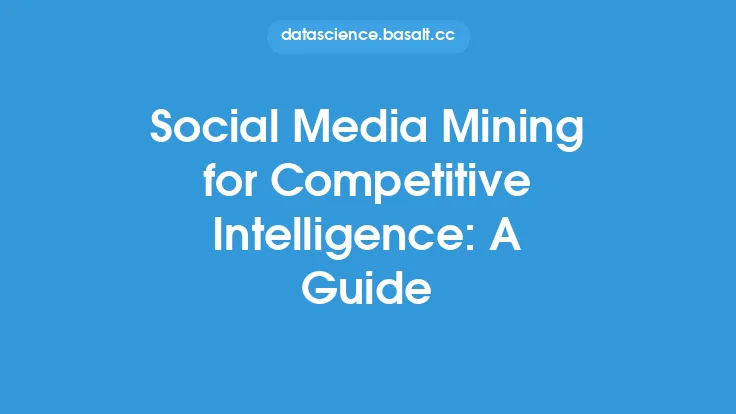As data scientists, we have the ability to collect and analyze vast amounts of data from social media platforms, providing valuable insights into human behavior, preferences, and opinions. However, with this power comes great responsibility, and it is essential to consider the ethics of social media mining to ensure that our actions are transparent, respectful, and do not harm individuals or communities. In this article, we will delve into the ethical considerations that data scientists should be aware of when mining social media data, and provide guidance on how to navigate these complex issues.
Introduction to Social Media Mining Ethics
Social media mining involves the use of various techniques, such as natural language processing, machine learning, and network analysis, to extract insights from social media data. While these techniques can be powerful tools for understanding online behavior, they also raise important ethical concerns. For example, social media users may not be aware that their data is being collected and analyzed, or they may not have given their consent for their data to be used in this way. Additionally, social media mining can be used to target specific groups or individuals with tailored messages or advertisements, which can be seen as manipulative or exploitative.
Privacy and Data Protection
One of the most significant ethical concerns in social media mining is the issue of privacy and data protection. Social media users have a right to expect that their personal data will be kept confidential and secure, and that it will not be used without their consent. However, social media platforms often have complex and confusing privacy policies, which can make it difficult for users to understand how their data is being used. As data scientists, it is our responsibility to ensure that we are collecting and analyzing data in a way that respects users' privacy and adheres to relevant data protection regulations, such as the General Data Protection Regulation (GDPR) in the European Union.
Informed Consent and Transparency
Informed consent is a critical principle in social media mining ethics. This means that social media users should be aware that their data is being collected and analyzed, and that they should have the opportunity to opt-out of data collection if they choose to do so. As data scientists, we should be transparent about our methods and intentions, and provide clear information about how user data will be used. This can be achieved through the use of clear and concise language in privacy policies and terms of service agreements, as well as through the provision of opt-out mechanisms and other controls that allow users to manage their data.
Bias and Discrimination
Social media mining can also perpetuate bias and discrimination, particularly if the data being analyzed is not representative of the broader population. For example, if a social media platform has a disproportionate number of users from a particular demographic group, the data collected from that platform may not be representative of other groups. As data scientists, it is our responsibility to be aware of these biases and to take steps to mitigate them, such as by using techniques like data augmentation or transfer learning to increase the diversity of the data being analyzed.
Harm and Exploitation
Finally, social media mining can also be used to cause harm or exploit individuals or groups. For example, social media mining can be used to spread misinformation or propaganda, or to target specific groups with manipulative or exploitative messages. As data scientists, it is our responsibility to ensure that our work is not being used to cause harm or exploit others, and to take steps to prevent these negative outcomes. This can be achieved through the use of techniques like fact-checking and source verification, as well as through the development of algorithms and models that are designed to promote transparency and accountability.
Best Practices for Ethical Social Media Mining
So, what can data scientists do to ensure that their social media mining activities are ethical and responsible? Here are some best practices to consider:
- Be transparent about your methods and intentions, and provide clear information about how user data will be used.
- Obtain informed consent from social media users before collecting and analyzing their data.
- Ensure that your data collection and analysis activities comply with relevant data protection regulations, such as the GDPR.
- Take steps to mitigate bias and discrimination in your data, such as by using techniques like data augmentation or transfer learning.
- Use fact-checking and source verification to prevent the spread of misinformation or propaganda.
- Develop algorithms and models that promote transparency and accountability, and that are designed to prevent harm or exploitation.
Conclusion
Social media mining is a powerful tool for understanding online behavior and preferences, but it also raises important ethical concerns. As data scientists, it is our responsibility to ensure that our activities are transparent, respectful, and do not harm individuals or communities. By following best practices like transparency, informed consent, and bias mitigation, we can help to promote a more ethical and responsible approach to social media mining. Ultimately, the goal of social media mining should be to promote greater understanding and insight, while also respecting the rights and dignity of social media users.
